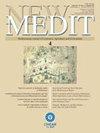未来市场能保护发展中国家的现货市场吗?埃及小麦市场的例子
IF 1.2
4区 经济学
Q3 AGRICULTURAL ECONOMICS & POLICY
引用次数: 0
摘要
埃及被认为是小麦净进口国,由于未来市场价格发现可能对现货价格的稳定性产生影响,埃及市场容易受到未来小麦市场的影响。本研究评估了埃及小麦现货价格与巴黎(MATIF)和美国(CBOT)未来小麦价格之间的关系。马尔可夫开关矢量误差校正方法通过将样本分为高波动率和低波动率来估计两个区域。本研究还考察了使用不对称DCC-GARCH考虑的价格之间的动态条件相关性。结果表明,观察到高波动机制,特别是在2007-08年和2010年粮食危机的极端市场事件期间,以及2011年和2013年埃及两次革命之后,以及2016年经济改革时期。这导致市场不稳定,对消费者福利和食品负担能力产生负面影响,这意味着期货市场未能对冲现货小麦市场对价格波动的影响。此外,脉冲响应函数的结果表明,期货市场1%的冲击将导致小麦现货市场的正冲击,而对于低波动率制度没有显著影响。本文章由计算机程序翻译,如有差异,请以英文原文为准。
Do future markets protect the spot markets in developing countries? The case of the Egyptian wheat market
Egypt is considered a net wheat importer, with the Egyptian market being vulnerable to future wheat markets because of the effect future market price discovery can have on the stability of spot prices. This study assesses the relationship between Egyptian wheat spot prices and future wheat prices in Paris (MATIF) and USA (CBOT). Markov switching-vector error correction methods are used to estimate two regimes by splitting the sample into high and low volatility regimes. This study also examines the dynamic conditional correlation between the prices considered using the asymmetric DCC-GARCH. Results suggest a high volatility regime observed, especially during the extreme market events of the food crisis in 2007-08 and 2010 and following the two revolutions in Egypt in 2011 and 2013 and the time of the economic reform in 2016. This leads to an unstable market and negative impacts on consumers’ welfare and food affordability, meaning that futures markets failed to hedge spot wheat market against price volatility. In addition, results from impulse response functions indicate that a 1% shock in futures markets will lead to a positive shock in the wheat spot market, while for the low volatility regime no significant effect.
求助全文
通过发布文献求助,成功后即可免费获取论文全文。
去求助
来源期刊

New Medit
AGRICULTURE, MULTIDISCIPLINARY-
CiteScore
2.00
自引率
30.00%
发文量
31
审稿时长
>12 weeks
期刊介绍:
New Medit is an applied economics journal, with a multidisciplinary approach, aimed at providing insights into the economic and the social transformations of agro-food sector, rural societies as well as local development and bioeconomy in the Mediterranean Basin.
Manuscripts submitted to NEW MEDIT generally should deal with wide-ranging topics that can be extended to other countries where organisational, production and market conditions and the related development policies may emerge at the corporate or regional level.
 求助内容:
求助内容: 应助结果提醒方式:
应助结果提醒方式:


